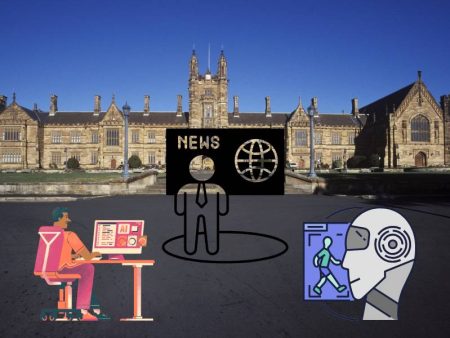Alright, writers. Let’s talk.
No, seriously—pull up a chair. This isn’t one of those “10 tips for SEO success” kind of posts. This one’s more like the conversation you’d have with a fellow writer over lukewarm coffee and deadline-induced anxiety.
Because the question has been gnawing at us lately, hasn’t it?
Should we start using AI humanizers to pass those scary little content detectors… or should we just learn to write “differently”?
Or maybe more accurately—what the hell does “differently” even mean anymore?
Let’s break this down together. No jargon, no pretense. Just writer-to-writer honesty, with all the mess and magic that comes with it.
First: What Even Is an AI Humanizer?
If you’ve never heard the term, don’t sweat it. You’ve probably seen it in action without realizing it.
AI humanizers are tools that rewrite or rephrase content—often AI-generated—to make it seem more like it was written by, well, a real person. They’re like digital ghostwriters that add a little mess, a little unpredictability, and maybe even a dash of sass to your otherwise “too perfect” prose.
Why? To fool detectors.
And if you’ve tangled with an AI Content Detector, you know why that’s important. One wrong move, and your lovingly crafted words get flagged as machine-made—even if they weren’t.
Which feels like an insult, right? Like someone calling your handwritten love letter “too generic.”
It stings.
So yeah, people turn to AI humanizers. Some because they’re using AI and want to sneak it past the guards. Others because their own writing—raw, passionate, maybe ESL—is misjudged by an algorithm that couldn’t spot a metaphor if it slapped it in the face.
But should we rely on these tools?
The Shame That Shouldn’t Exist
Can we just pause for a second and acknowledge something?
There’s no shame in using tools.
Pen and paper are tools. Spellcheck is a tool. Google Docs yelling at me for overusing em dashes is, unfortunately, also a tool.
So if you’ve ever used a humanizer to smooth things out or bypass an unfair detection system, you’re not cheating. You’re surviving. Adapting.
Still, we’re facing something deeper here: the fear that our words don’t sound human enough. That our tone, our structure, even our rhythm is being weighed and measured by cold math.
It’s not just about bypassing a detector.
It’s about being seen.
“Write Differently,” They Said. But Differently From What?
Here’s where it gets messy.
There’s this growing chorus of advice telling us to “just learn to write differently” to avoid detection. Be less formulaic. Inject more imperfection. Use idioms. Tell stories. Don’t sound too polished, too robotic.
Cool. Got it.
But here’s the problem: what if that’s just not your style? What if English isn’t your first language, and you’ve worked for years to write clearly and precisely? What if you like clean writing? What if your voice is naturally concise?
You shouldn’t have to perform a caricature of “humanness” to be taken seriously.
“Writing differently” isn’t bad advice. But it assumes that there’s one “right” way to sound human—and that’s just… not very human.
The Human vs. Machine Writing Game Is Rigged (For Now)
Let’s get something straight: AI-generated content is getting good. Really good. Like, “did a junior copywriter write this or did GPT-4 have a creative moment?” level good.
And sometimes, even human-written stuff gets flagged as robotic. Why? Because we often write in predictable patterns. Especially when we’re tired. Or rushed. Or writing SEO blogs at 2 a.m. with a deadline breathing down our necks.
So when the game is rigged and you’re getting flagged for sounding like a bot, even when you’re bleeding onto the page—what do you do?
You adapt. You either rewrite, or you reach for a tool that’ll do it for you.
And there’s nothing wrong with that.
The Real Question: What Do You Want Your Writing To Do?
Let’s zoom out.
The bigger question isn’t “Should I use an AI humanizer?” The question is:
What do you want your writing to do in the world?
- If you’re trying to pass a class, keep your scholarship, and avoid being accused of cheating? Use the tool.
- If you’re running a blog for your small business and want it to sound more like you, but you’re just not a natural writer? Use the tool.
- If you’re experimenting and learning and just curious how it might reshape your voice? Yep—use the tool.
But if you’re trying to find your voice? Hone your style? Say something true?
Then maybe don’t outsource that just yet.
Because even if you struggle, even if the sentences feel clumsy at first—that’s your real writing muscle growing. And tools can’t flex that for you.
The Future: Learning to Dance With Machines
Whether we like it or not, we’re already co-writing with machines. Even if you haven’t used an AI tool, you’ve probably written to appease Google’s algorithm. Or Grammarly’s little judgmental red line. Or some boss’s idea of “brand voice.”
It’s exhausting.
So maybe instead of choosing between “use a humanizer” or “write differently,” we learn to blend.
You write with your heart.
Use tools for polish, or to battle a system that isn’t built for nuance.
You keep your voice, but borrow a mic when the crowd’s too loud to hear you.
That’s not cheating. That’s just… being a writer in 2025.
A Quick Sidebar on Images (Yes, They’re in This Too)
Before we wrap, a fun little twist: this debate isn’t just about words anymore.
Images are being questioned too. That dreamy “photo” of a mountain village at sunrise? Could’ve been AI. That too-perfect headshot? Suspicious.
That’s why we now have tools like the AI Image Detector Without Sign Up, which lets you check if an image was generated by AI. No account needed. No strings attached.
It’s another layer of this weird new reality, where we have to fact-check everything—even art.
Wild, right?
Final Thoughts (The Human Kind)
So, should writers use AI humanizers?
My honest take? Yes—if you want to. But don’t let it replace your voice.
Writing is messy. It’s emotional. It’s full of contradictions and run-on sentences and metaphors that don’t always land. That’s what makes it real.
Don’t let an algorithm convince you otherwise.
Use tools if they help. Ignore them if they don’t. Just remember that your voice—flawed, funny, poetic, awkward—is worth protecting.
Because at the end of the day, writing isn’t about passing a detector.
It’s about being heard.
So… what’s your take? Ever been flagged unfairly? Use a humanizer and feel weird about it? Let’s chat in the comments—real thoughts, real voices. I’m listening.


